EMERGENCY PROJECT: COURAGEOUS WOMEN IN LIFE-THREATENING DANGER!
Jan. 2024
For more than 9 months now, Iranian women have been courageously and steadfastly striving for basic human rights and freedom for themselves and the entire Iranian population. These brave women and girls have become emblematic for the uprising against the religious fundamentalist mullah dictatorship. They personify the ability to overcome fear and stand up to the forces of repression.
With their pronounced determination, competence, sense of responsibility and unwavering perseverance they have awakened a new understanding of women’s circumstances in Iran, and in doing so have engendered tremendous solidarity throughout the populace. The Iranian people want to end this barbaric, inhuman and misogynist regime through their own efforts, and they are working together to achieve a future Iran where freedom, equality and all basic human rights are guaranteed.
POISON GAS ATTACKS ON GIRLS' SCHOOLS Read More..
This is why the mullah regime, in a last-ditch effort to keep itself in power and quell the national uprising, has now initiated a wave of executions with the aim of creating an atmosphere of fear and terror, and hence subservience.
Every 6 hours since the beginning of this year, a person has suffered an agonising death by the gallows at the hands of the mullah regime. Thousands of imprisoned women and human rights activists live in fear that they may be the next. We therefore have launched a life-saving campaign to stop this wave of executions. Together, we can save the lives of many of these courageous individuals – people who represent the hope for a future that is worth living in Iran.
EXAMPLES OF FREEDOM-LOVING IRANIAN WOMEN HELD IN THE PRISONS OF IRAN’S RELIGIOUS DICTATORSHIP:
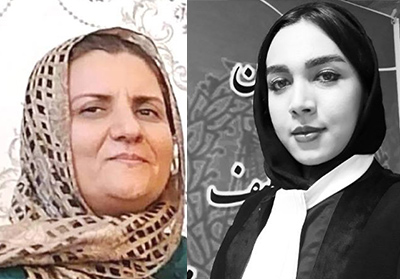
On Monday 29 May 2023, Tayyebeh Nazari posted an Instagram message saying that her daughter Maryam Arvin, who had been arrested for defending a detained protester, died after being released on bail from prison, purportedly through the injection of tranquilizers and sedatives. Maryam Arvin, 29, was a lawyer and member of the Lawyers Association in Kerman Province, as well as a volunteer in fighting for the rights of deprived individuals, welfare children, and child laborers. Tayyebeh Nazari, who teaches literature at high schools in Sirjan, was also arrested after following up on her daughter’s tragic cause of death.
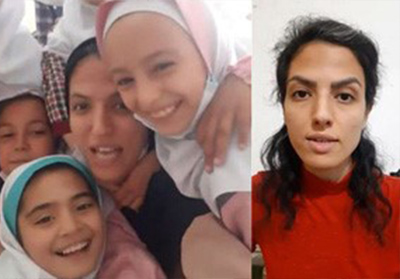
Atekeh Rajabi was a primary school teacher in a village near Mashhad. In January 2023, she was dismissed from her teaching job because of her support for the protest movement. Arrested on 9 May while attending a protest rally of teachers in Mashhad, she was taken to a Department of Intelligence detention center where she went on hunger strike in protest.
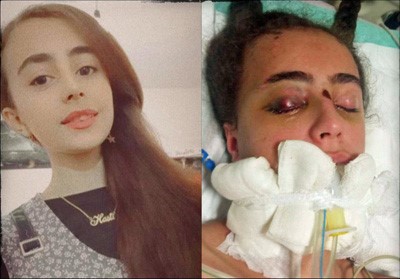
Another victim of the Iranian mullah regime’s brutality is 16-year-old schoolgirl Hasti Hossein-Panahi. On 10 November 2022, militias attacked a school in the city of Dehgolan and used batons to beat the schoolgirls who had protested against the obligation to wear a veil. Hasti was beaten on the head so severely that she suffered serious cranial injuries and fell into a coma. After five months of total incapacity, she awakened from the coma in April 2023 but can no longer move her arms or legs and is now dependent on a wheelchair.

Mariam Akbari Monfared, human rights activist and mother of three daughters, has been in prison for 12 years for a complaint she wrote to the UN Working Group on Enforced or Involuntary Disappearances (WGEID) concerning the execution of her sister and two of her brothers during the 1988 massacre of 30,000 Iranian prisoners.
In our campaign to win the release of these freedom-loving women, we very much need your support and financial assistance!
THE STATUS OF WOMEN UNDER IRAN’S RADICAL FUNDAMENTALIST DICTATORSHIP
Under the mullah regime in Iran, women have no value and no rights. For example: by law, it takes the word of two women to count as much as that of one man; moreover, a man can divorce his wife without justification, but a woman has no such right. Women do not have the right to choose their clothing, education, occupation and frequently even their husband, especially in poorer parts of the country. Girls are condemned from an early age to a life of oppression and coercion.
However, this is just the fundamentalist regime’s view of women. The Iranian people themselves – especially the youth – demand equal rights for women and stand up for their freedom. Despite facing the threat of execution, they express their opinions, demonstrate and write commentaries. At many protest demonstrations, women are in the forefront.
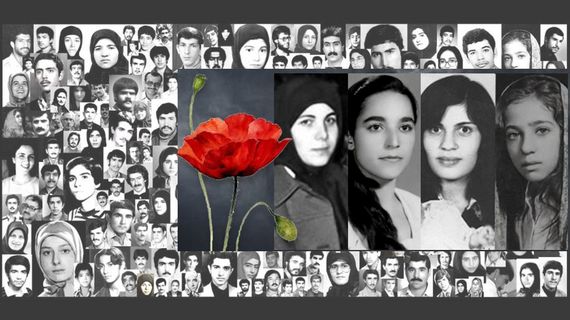
Thousands of women have been executed since the radical fundamentalist mullahs established their dictatorship in Iran. Utterly blind to international conventions, the Iranian regime has committed crimes against humanity through the mass execution of individuals for no other reason than their beliefs. People in Iran have to pay for freedom with their lives.

Iranian women have been courageously and steadfastly striving for basic human rights and freedom for themselves and the entire Iranian population since the beginning of the September 2022 civil protests. The courageous women and girls have become the symbol of the uprising against the religious fundamentalist Mullah dictatorship. They have shown how to overcome fear and how to stand up to the forces of repression.
The staggering number of executions of women in Iran is unmatched by any other country. Under the laws of the fundamentalist mullah dictatorship, even girls as young as 9 can be sentenced to death.
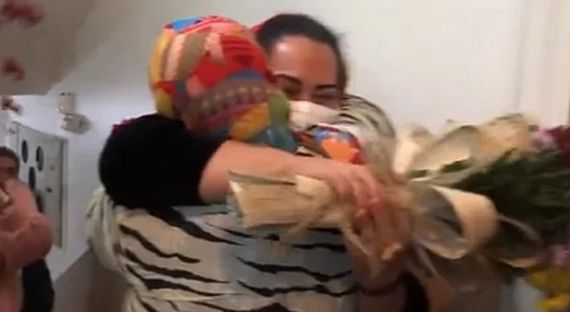
MENSCHENRECHTSARBEIT IST ERFOLGREICH!
Wir freuen uns sehr, Ihnen mitteilen zu können, dass nach langjähriger Öffentlichkeitsarbeit von Verein Welle und dem grossen internationalen Druck auf das iranische Regime, Atena Daemi, eine mutige inhaftierte Bürgerrechtlerin...
HISTORY OF DISCRIMINATION AGAINST WOMEN IN IRAN
The history of Iranian women’s resistance in their quest to achieve equal rights goes back more than 100 years – a long, hard road marked by several dictatorships that denied women any rights whatsoever. As bad as it was in earlier years, this discrimination reached its peak when the religious dictatorship wrested power in February 1979 following the overthrow of Shah Mohammad Reza Pahlavi.
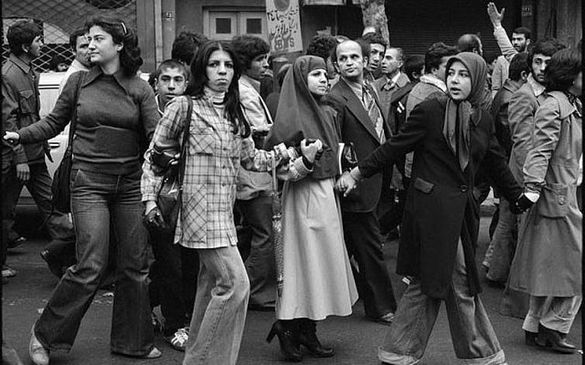
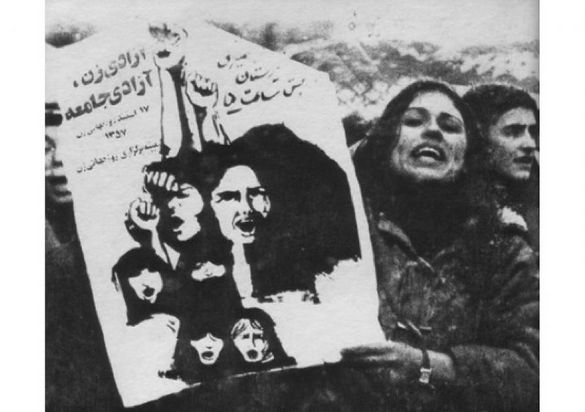
The following is a brief chronology of the repressive measures against Iranian women, especially those imposed just a few weeks after the dictatorship came to power. This is just a small sample of the daily repression women face at the hands of the mullah regime.
- 26 February 1979: Ayatollah Khomeini’s fatwa abolishes the Family Support Law, which had been adopted during the Shah’s reign and granted women minor rights.
- 28.02.1979: Discriminatory laws against women in sport are enacted and all competitions by women are gradually abolished.
- 02.03.1979: Women are excluded from the judiciary, thereby preventing hundreds of female acting or aspiring judges from practising their profession.
- 04.03.1979: Men are permitted to file for divorce at any time and without providing grounds.
- 07.03.1979: Mandate that all women wear the chador in public facilities; “Either a head covering or a blow to the head” was the Khomeini regime’s slogan.
- 1979: The constitutional amendment that women may not hold the office of President.
- 29.05.1979: For the first time, a woman is subjected to public flogging.
- 03.02.1980: Government decree that female nurses and doctors are compelled to wear the chador.
- 19.04.1980: Female singers are summoned to court and banned forever from singing.
- 29.06.1980: Two women in the city of Kerman are condemned to stoning for the first time.
- 1983: Article 2.1 of the Civil Code stipulates that woman who do not comply with the mandate to wear the chador in public are punishable with 74 lashes.
- Courageous Iranian women, for no other reason than demanding their basic rights, are arrested and tortured every day. So far, 114 women have been executed in the time since Hassan Rouhani and Ebrahim Raisi came to power in Iran.
